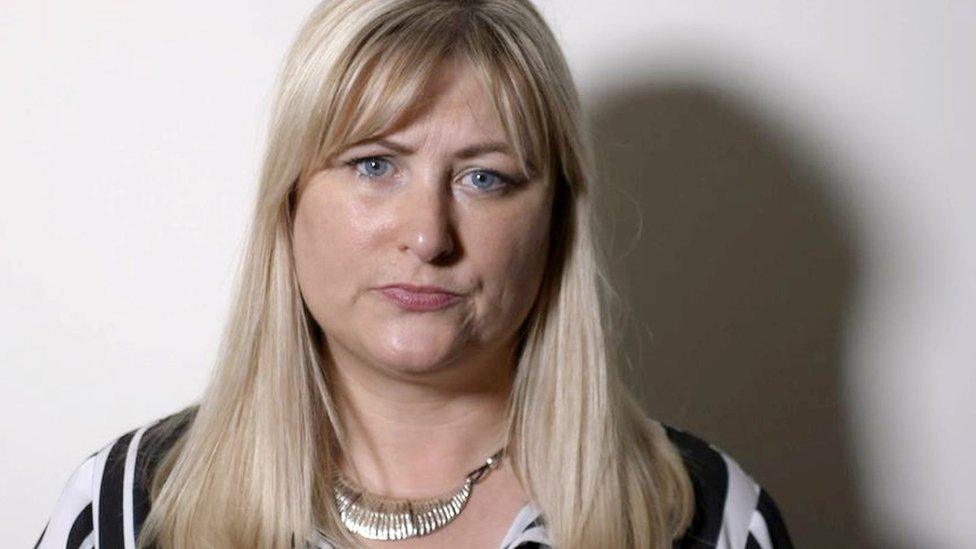Vaginal mesh: Northern Ireland centre progress 'frustrating'
- Published
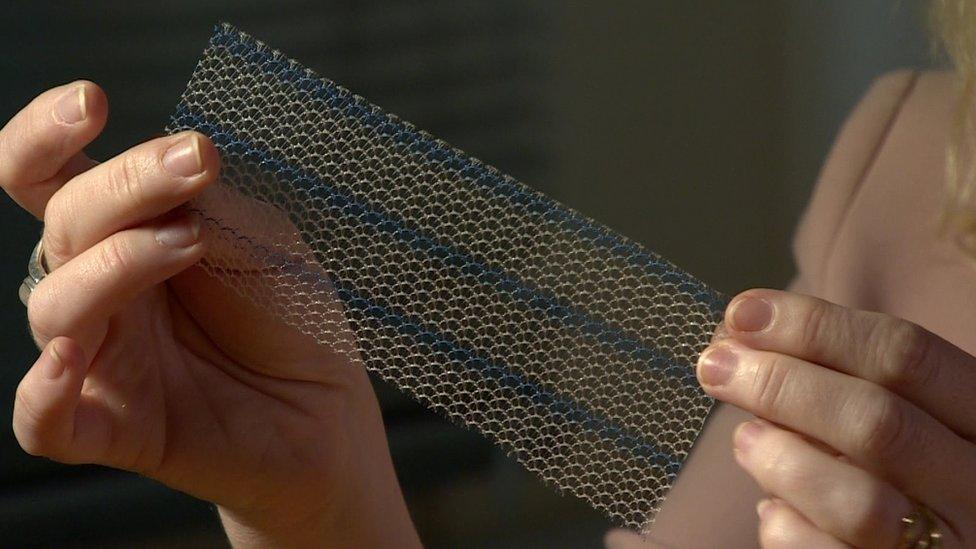
The mesh implants are used to ease incontinence and to support organs
Progress on a regional centre to treat women affected by the vaginal mesh scandal has been slow and frustrating, Sinn Féin has said.
Sinn Féin MLA Órlaithi Flynn made the comments in an interview with BBC News NI.
Ms Flynn received a letter, seen by the BBC, from the Permanent Health Secretary Richard Pengelly in December.
The letter said that a business case for the centre had been submitted and funding had been allocated.
Mr Pengelly also said the Belfast Health and Social Care trust had informed him the centre would be "fully operational by March 2019".
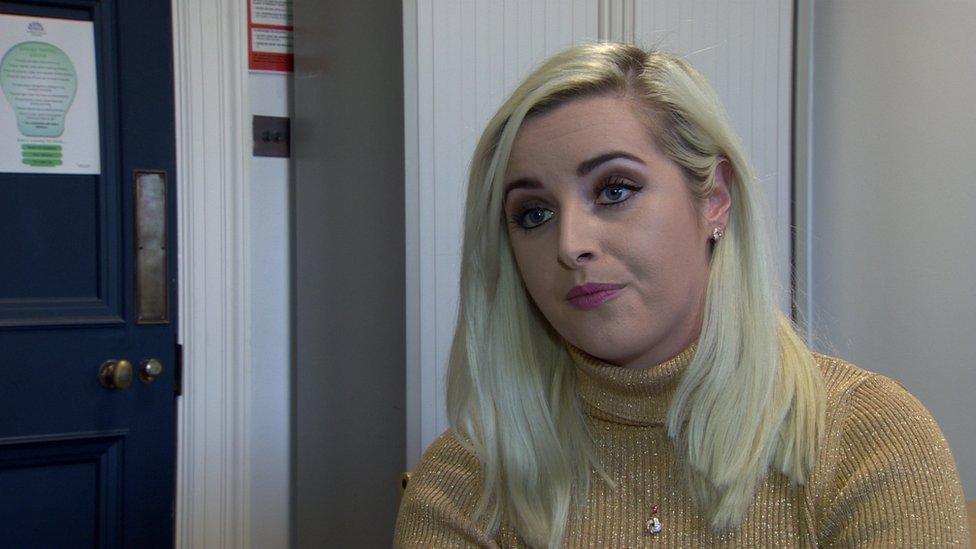
Órlaithi Flynn said that while the delay was disappointing, it was important that funding was approved and a date set
Ms Flynn said that while the delay was disappointing, it was important that funding was approved and a date set.
"The positive thing is that the Department of Health has given us the reassurance that by March 2019, the mesh centre will be fully operational and open for women to avail of."
In June 2017, a number of local women told the BBC how mesh implants had left them physically and mentally scarred.
Since then, an increasing number of women and men have come forward with personal stories of how mesh has created complications for their physical and mental health.
Women described how the mesh had cut into the vagina causing severe discomfort.
While official figures show that about 7,000 women have had vaginal mesh implants, it is unclear how many have been adversely affected.
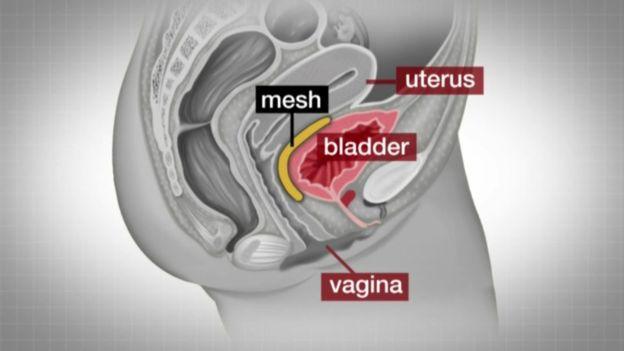
Mesh implants are used to treat organ prolapse and urinary incontinence
A review of vaginal mesh surgeries in Northern Ireland last year found most surgeons failed to keep to guidelines on how many operations they had performed.
The mesh centre, or unit, is a joint initiative between the Health and Social Care Board and the Public Health Agency.
In an interview with the BBC, in February 2018, Dr Christina McMaster said a specially accredited unit had been set up to deal with women who are coping with problems following vaginal mesh implants.
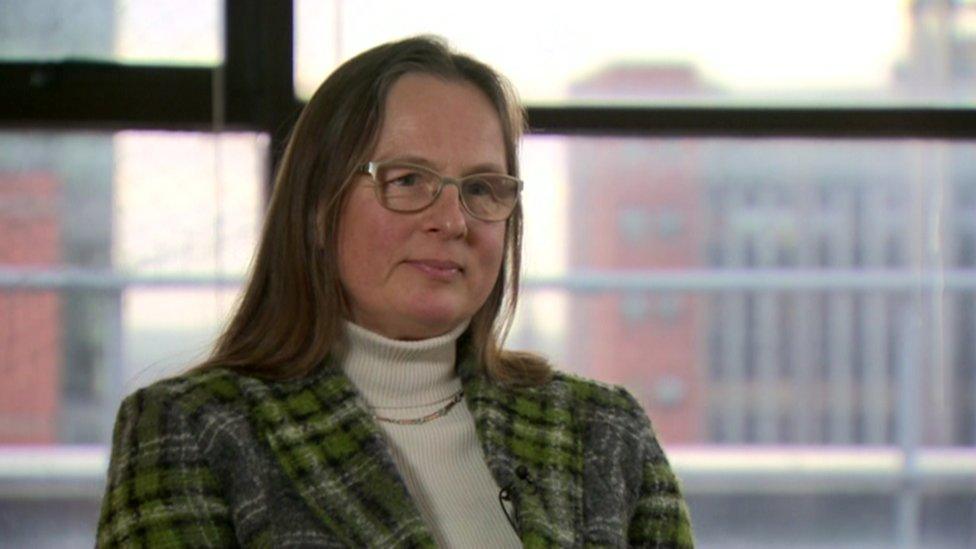
Dr Christina McMaster said some women's stories are "harrowing"
According to the Health and Social Care Board, the centre has been treating women, and at least four women have had mesh removed.
However, the support group, Sling the Mesh NI, said there had been a breakdown of trust between women and local clinicians with many women opting to travel to England instead for mesh removal surgery.
A translabial scanner, which is used to detect surgical mesh, has been purchased by the trust, but in order for the centre to be fully operational, theatres and specialist surgeons are also required.
Ms Flynn says she continues to be contacted by women who are affected.
On a positive note, one woman who had mesh removed at the end of last year said it was a positive experience.
"Until they get the surgery a lot of these women are suffering on a daily basis," she said. "They become immobile and are suffering mentally too.
"I understand that the mesh centre will be able to provide therapy for their mental health too."
A review of vaginal mesh implants is underway and until the results are published, a temporary ban is in place.
- Published14 February 2018

- Published16 November 2017

- Published26 June 2017
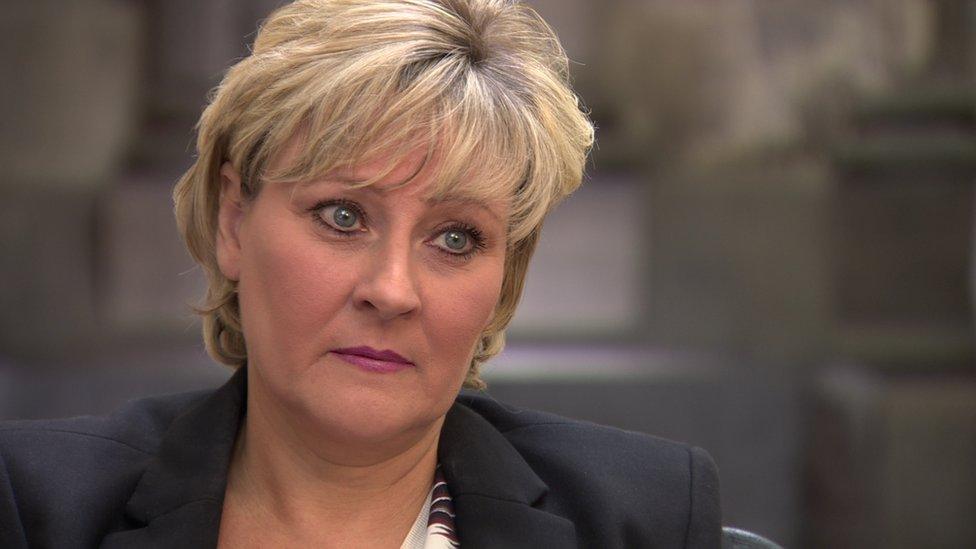
- Published18 April 2017
